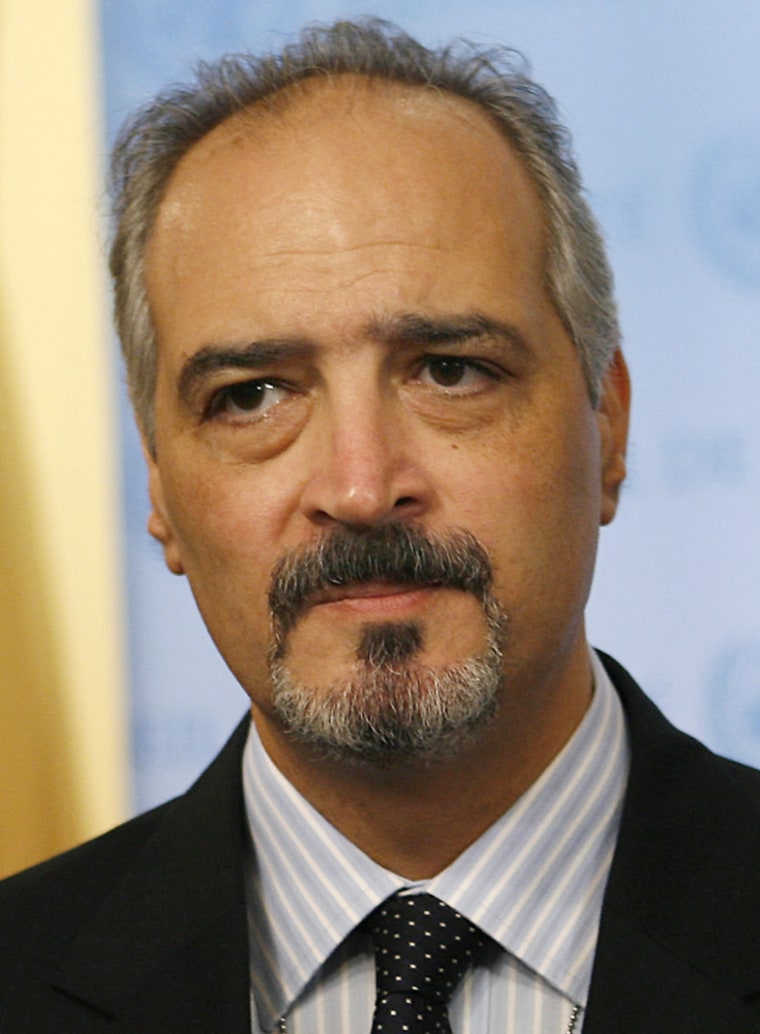Syria accused a senior U.N. official on Wednesday of falsely claiming that Lebanon had reported the recent smuggling of arms into the country from Syria in violation of Security Council resolutions.
Syrian U.N. Ambassador Bashar Jaafari dismissed as “untrue” an Oct. 30 statement on alleged smuggling by Terje Roed-Larsen, the top U.N. diplomat on Lebanese ties with Syria.
The envoy’s report set off alarms in the Middle East because it bolstered Israeli charges that Syria was smuggling arms to Hezbollah guerrillas in Lebanon, in violation of the Aug. 14 cease-fire ending the 34-day Israeli-Hezbollah war.
Israel has used the charges to justify surveillance flights over southern Lebanon — which also violate the cease-fire — on grounds it needs to monitor activity on the ground.
Roed-Larsen, briefing the Security Council and later speaking with reporters on Oct. 30, said Lebanese officials had regularly reported to him that arms were being smuggled into the country from Syria.
The officials were treading softly on this matter due to the Lebanese government’s fragility, he added.
Jaafari, in a letter made public by the United Nations on Wednesday, expressed Syria’s “extreme regret” over what he termed the “untrue allegations” by the U.N. diplomat.
He asked Annan to inform his envoys of “the need to strive for accuracy and truth in statements by them regarding matters of extreme political sensitivity.”
U.N. sticks by accusation
Roed-Larsen’s allegations had also been denied by Lebanese Prime Minister Fouad Siniora, Foreign Minister Fawzi Salloukh and Defense Minister Elias al-Murr, Jaafari said.
U.N. chief spokesman Stephane Dujarric said on Wednesday that the United Nations was sticking by Roed-Larsen’s statements.
According to U.S. Ambassador John Bolton, Roed-Larsen told the council behind closed doors on Oct. 30 that the Lebanese authorities were being imprecise about the smuggling for fear of retaliation from Syria.
Asked by reporters at the time about Bolton’s statement, Roed-Larsen had said he had no specific information about threats of retaliation.
But he had noted there were 14 assassinations or attempted assassinations in Lebanon since the February 2005 murder of former Prime Minister Rafik al-Hariri, whose killing is under U.N. investigation. Many Lebanese blame his death on Syria, although Damascus has denied any involvement.
Syria has previously acknowledged that arms might be smuggled across the border into Lebanon but has said the border is porous and very difficult to control.
Security Council resolutions in 2005 and 2006 imposed an arms embargo on Lebanon and called on it to disarm all militias on its soil, including Hezbollah, an armed group as well as a part of the Lebanese government.
